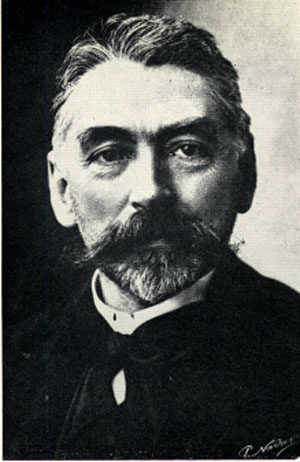
Aimless (Pencils, &c.)
A round of rosy post-
Slumberous companions, my dog is
One, and the scattery big
Droplets of the midwinter rain
Hitting the matted-down oak
Leaves another, or I duck
Out into the kitchen, empty,
To peel a couple of
Potatoes for boiling. Where is
That piece about Harold the
Horse, that’s got potatoes boiling
In it too. No matter,
In the reckless dismemberment of
My history, my rout out
Of the rubble, I fossick
The black notebook, find something
White as a clock, and
Post-architecturally soft, draped off
The tines of the unconniving
Fork of an angry god:
A Piece of My AutobiographyIs what it banners up:
“My middle name is Alex,
The neighbors call’d me Bing.
The autumn following the summer
Of my divers experiments with
The shaman Kurt, I suffer’d
A relapse of mimesis with
Toby, a wayfarer with a
Yen to obtund. My first
Princess is a random animal,
A Bolshevik named Agatha. Explicit
And hardy, rubbery and dull.
She snaps her fingers negligently,
And that first moment didn’t
Seem one, or more, or
Less. Agatha is aghast: I
Klaxon. It is Missus Polk
Who teaches me to correctly
Porrect my P. Palmer method,
Kept after school, a leery
Wreck in a starch’d shirt.
‘My little bum,’ and she
Guided my pencil so queerly
In the shivery cloakroom. Next
Year I had Miss Dot,
An eager prune with a
Strong sense of disabuse and
My tom-tom beat no
More
ugh and
ugh. I
Grew moss, and monstrous. I
Cater’d to the brown analphabetic
Birds I was present’d for
Puberty, Q-Tip and Stannous
Fluoride. I split two demi-
John’s with my half-brother
John and hit the airwaves,
Sprung out of the earth’s
Half-Nelson hold like a
Wrestler, by a bicyclist.
If
Not addled, not proud, if
Not puzzled, not grand, is
What he remark’d. The next
Morning a cheesy hello and,
White as a sepulchre, I
Black’d out. I wrote my
First story, ‘Gaylord Graustark Naked,
Or, Philology in the Bedroom.’
The hero discusses histrionics with
A minor Venus who is
Trapped in a fly’s body.
She is reveal’d to be
Spanish, and the tiresome tale
Concludes,
That’s gonadotropic, Gaylord said,
In order to say something.”
Which is unlikely, though who’s
To say a made thing’s
Got steerage once it brooks
A high-water mark, and
books? I tender it out
Strung catgut taut and turns
Out it’d need a guy
Wire to keep it out
Of trouble. A man with
Two slipper’d feet up dirtying
The ottoman says an object
Hewn of a stump dug
Out of a lot in
Council Bluffs’d just maybe be
Prettily turn’d on a lathe
By a slapdash hoot in
Joplin, or Vernorsville. And being
Once succinct, he nods to
Somnolence. Knowing goes drafty and
Vehicular at such remove, try
Running a saw against a
Piebald mess of formica adhered
With macular imprecision to a
Block of composite, thing’ll buck
Right out of one’s hands.
Nothing for it beyond continuing,
Seeing how seeing’ll bring what’s
Unseen around with its whiff
Of hot metal, its pied
Type irretrievability, its
kcheck noise
Hitting the firing bucket whilst
The rollers sweep and pivot,
Platen to lock-up, lock-
Up to ink. Seeing a
Gadabout, a gimp of delivery,
A khaki-pant’d boy with
A bouquet of jasmine achieving
A porch. Or seeing mocks
What it cannot see, a
Clown with a lash saying
Lug you’sef ovah heah,ya
Venereal fat and cupiditous one. Calls unsatisfactory and earthly, bound up
In practical making, countersinking nail-
Heads, stuffing sphagnum into wounds,
Finding a plover’s egg under
A tump. One’s out in
The continual hungry world, indubitably
Motz, undeniably
son, feverish for
Something beyond the wiry armature
Of the sensual.

Uomo di Latta




































